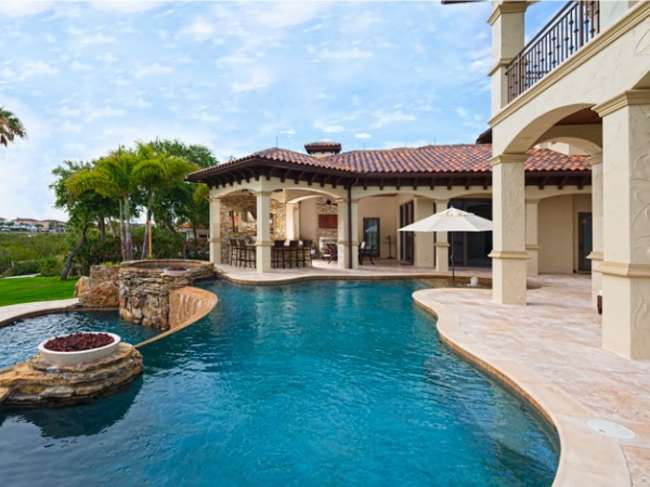

We may earn revenue from the products available on this page and participate in affiliate programs. Learn More ›
With Relaxation Comes Responsibility
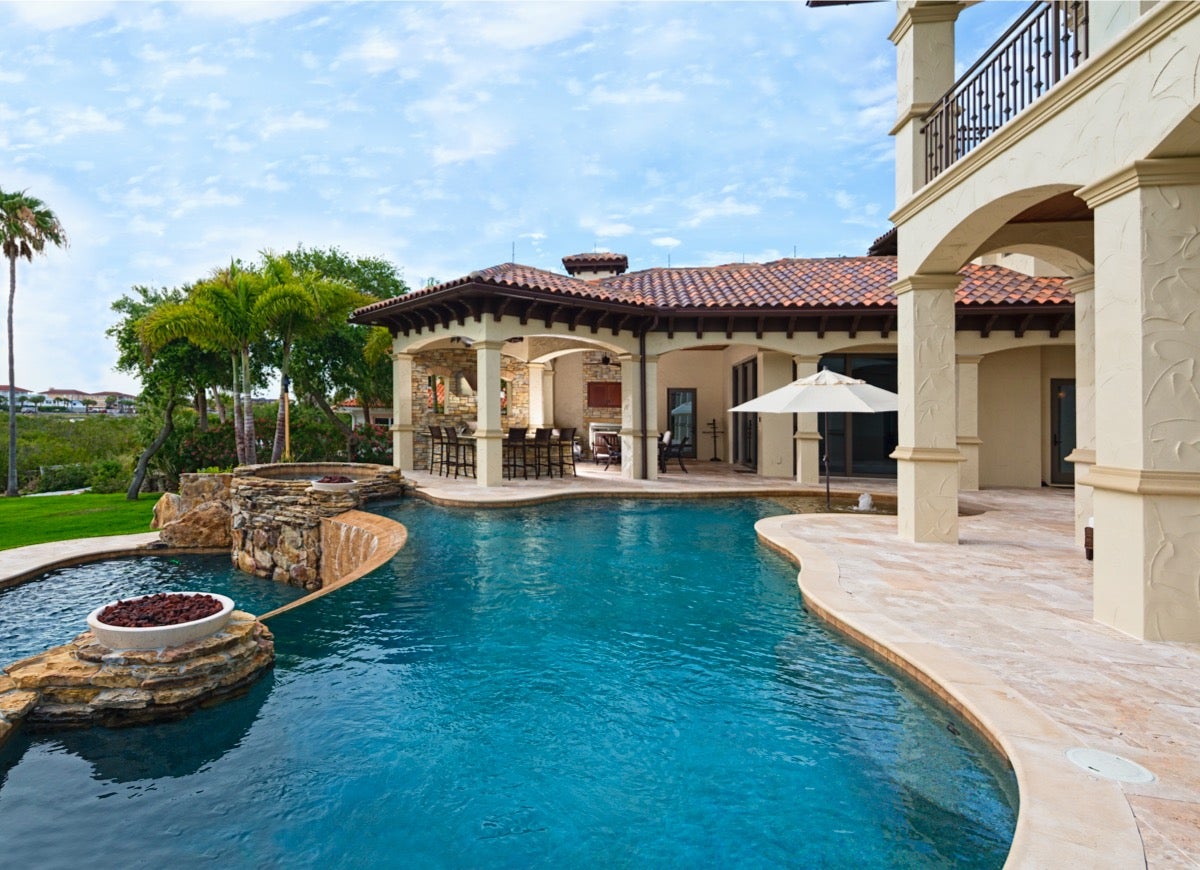
Purchasing a home—any home—is one of the most monumental decisions you’ll ever make. Purchasing a home with a pool, however, adds another layer of careful consideration to the process. The following slides outline some of the most essential things to know before buying a house with a pool.
Above-Ground vs. Inground Pool Costs
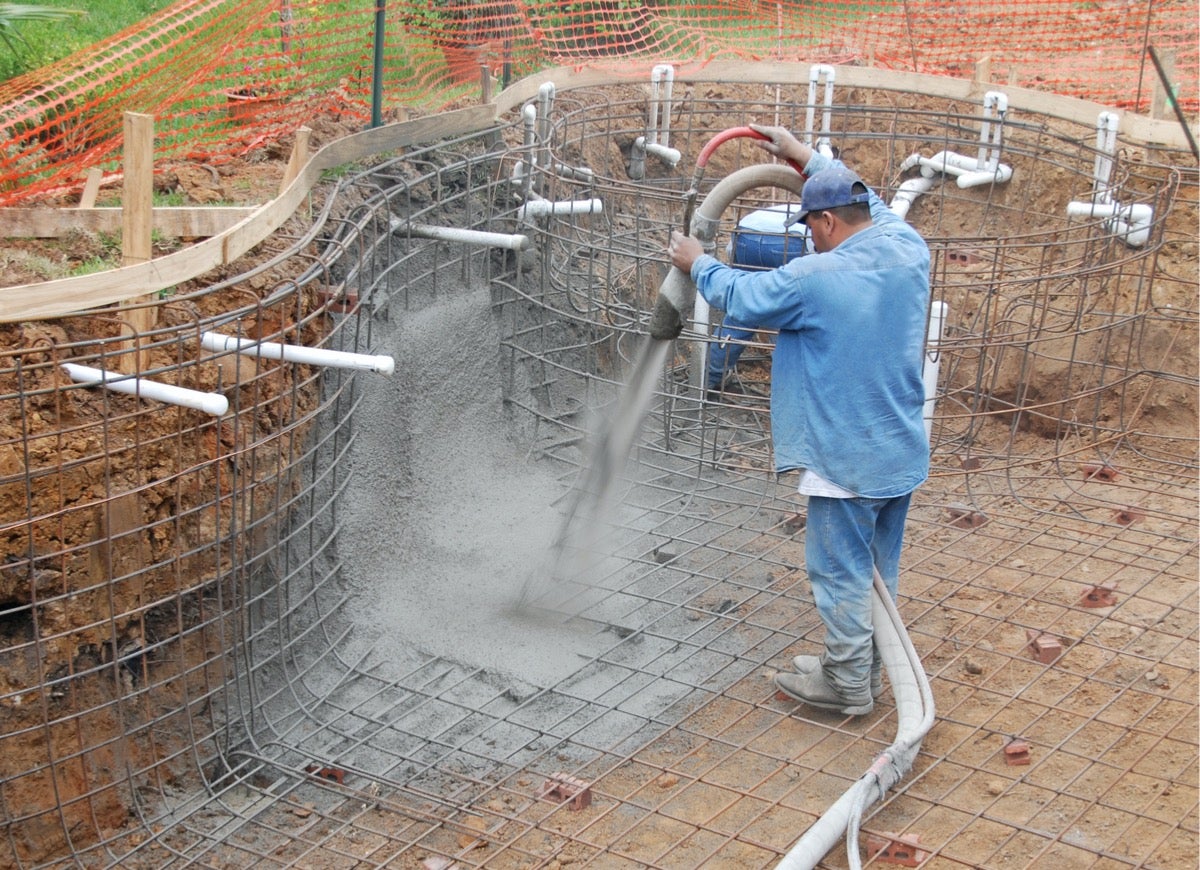
To help you understand how much value a pool adds to a for-sale home, let’s begin by looking at the cost of installing one. The average above-ground pool price is about $8,300, while an inground pool rings up at an average of more than $50,000. This disparity in cost might make the decision clear, especially if those who are thinking of buying a pool but are limited by a bare-bones budget. Buying a home from someone who’s already made a substantial investment in a pool is a different matter.
Ongoing Pool Ownership Costs
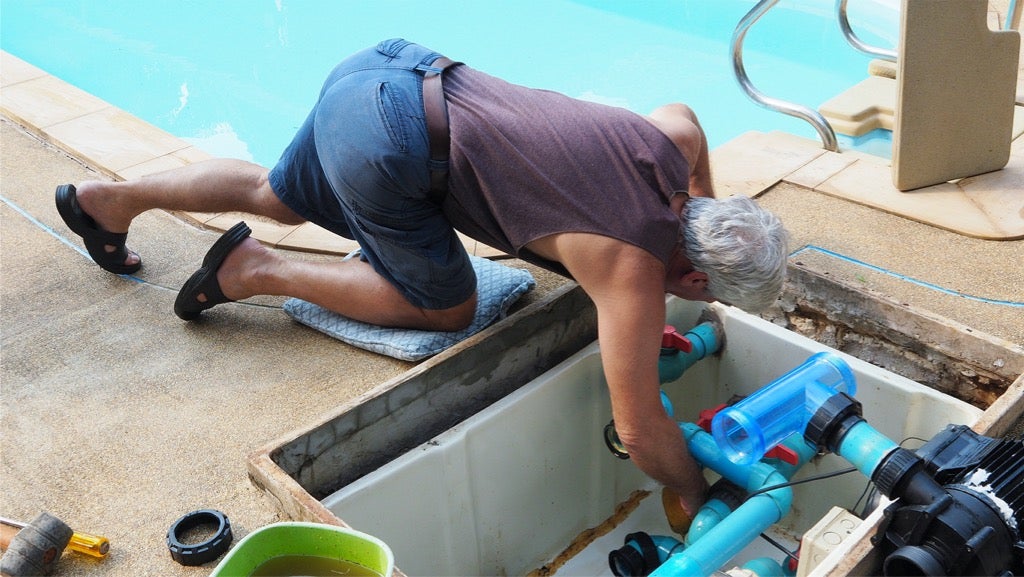
If the pool comes as part of a package deal with the house you buy, the most important numbers to crunch involve the ongoing costs of ownership. These vary widely depending on the type of pool, its size, the amount of use it gets, its age, and other factors. Plenty of homeowners fail to do their due diligence before purchasing a house with a pool, only to realize that the price of maintaining it is prohibitive.
Budget for Professional Pool Maintenance
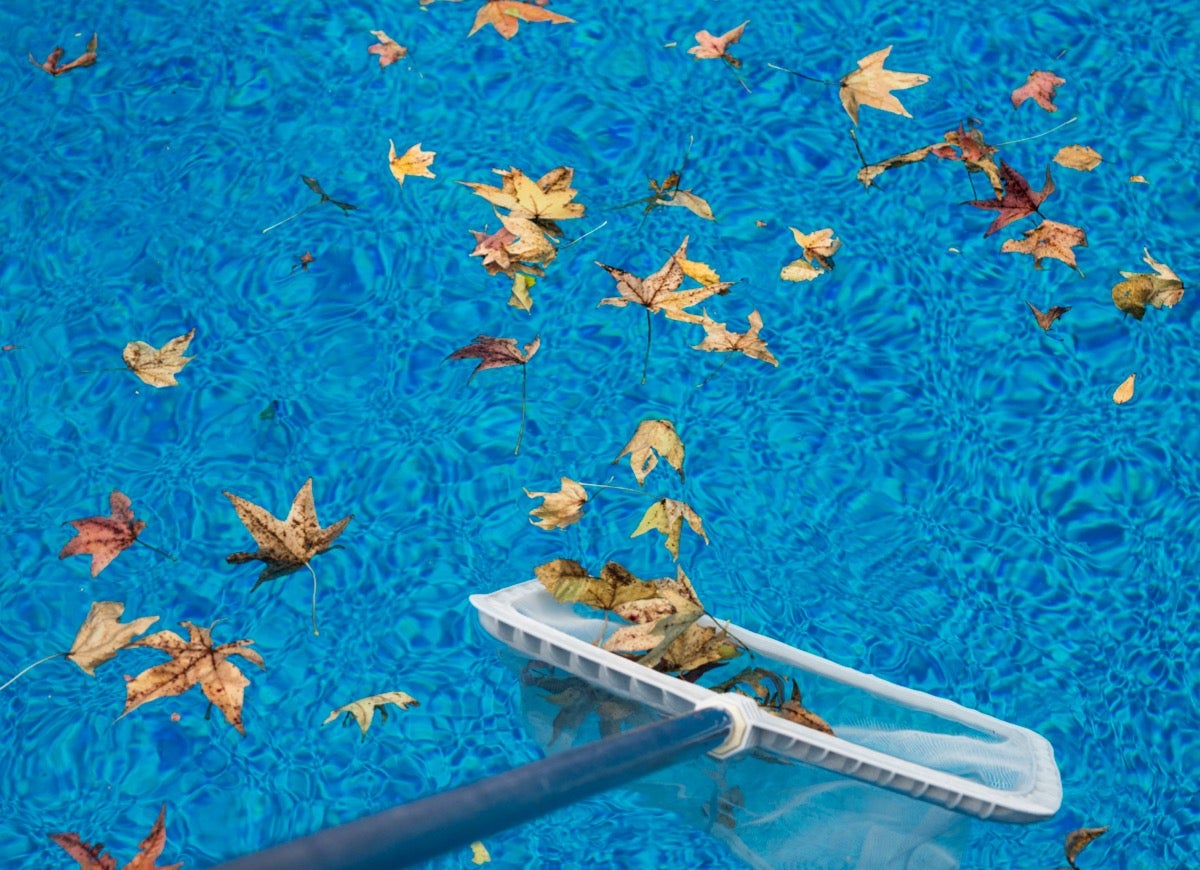
Homeowners who simply don’t have the time to do their own pool maintenance can opt to outsource the work to pool care professionals. Professional monthly maintenance expenses run between $80 and $150. Surprisingly, it’s the above-ground kind of pool that can cost more to maintain, especially if there is no deck surrounding the pool. (Without a deck, it’s more difficult for the pros to access the water and work on the pool.)
Related: How to Clear Cloudy Pool Water
How Much Maintenance Does a Pool Need?
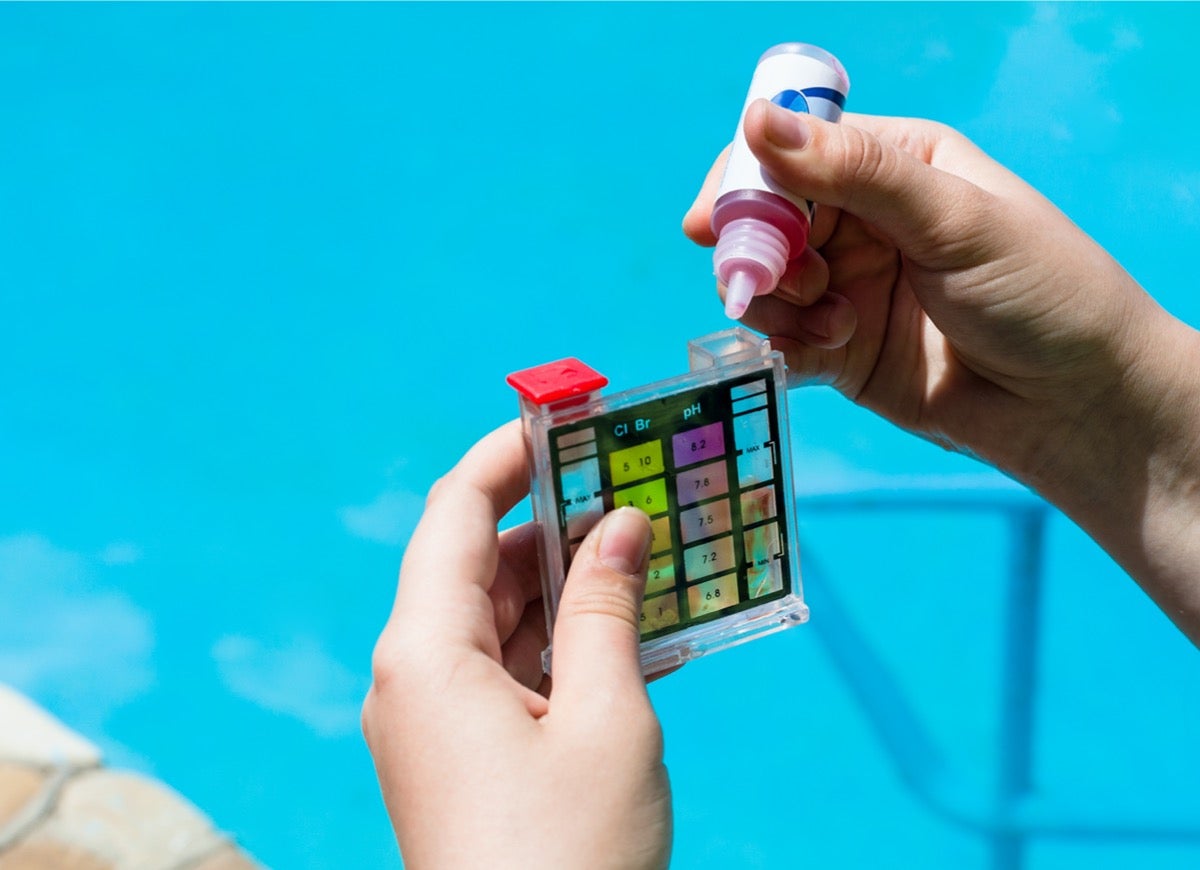
Whether it’s an above-ground pool or the in-ground variety, keeping a pool in optimal condition—clean, sanitized, algae-free, and pH-balanced—will gobble up a fair amount of your free time. Pool care is not a hands-off job or something you can set and forget. The minimum maintenance chores include:
– Skimming the pool and emptying the strainer baskets
– Brushing the walls of the pool
– Using a pool vacuum
– Running the filter (although this task is usually done on an automatic basis, using timers)
– Checking the water level, and refilling the pool, if necessary
–
Testing the pool water chemistry, and adding chemicals as needed
These tasks should be done regularly. It’s a good idea to skim, check the baskets, and make sure the filter is functioning as it should on a daily basis. Vacuuming and tending to the pool water’s chemical makeup is usually a weekly chore.
Related: How to Maintain a Pool: Tips For Safe Enjoyment All Season
Pool Life Expectancy
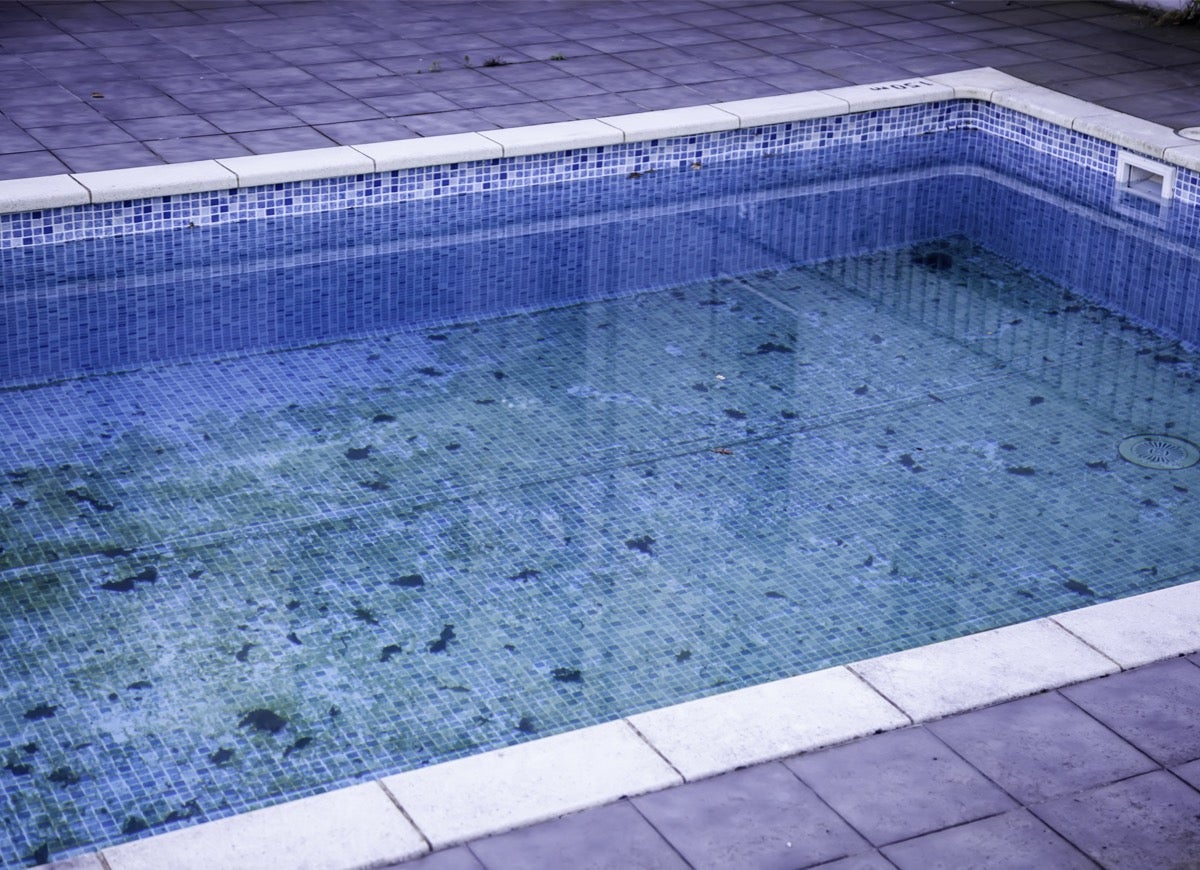
Another crucial consideration before you make an offer on a home with a pool is the pool’s lifespan. Pools are usually made of vinyl, concrete, or fiberglass. Depending on which building material is used, they can last anywhere from 5 to 25 years before requiring serious work such as resurfacing or replacement.
Necessities and Accessories
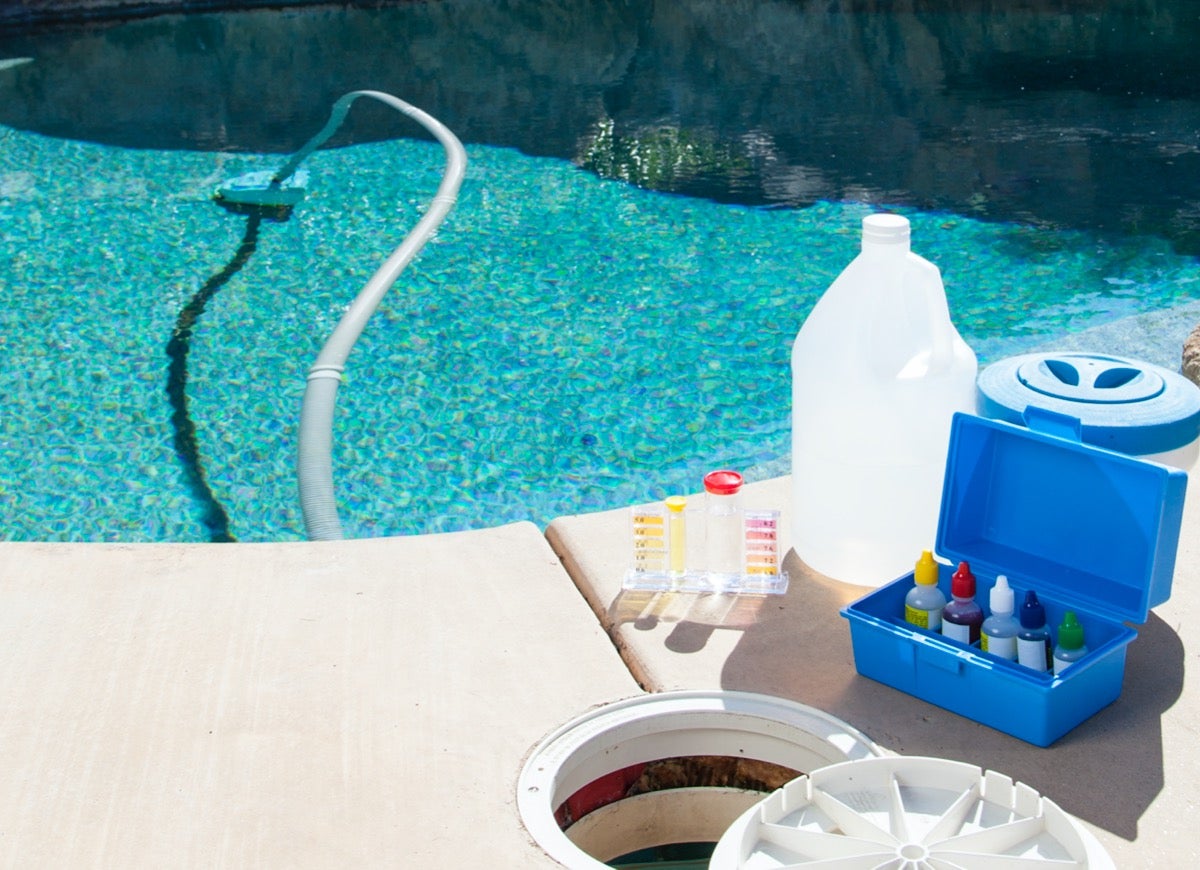
In addition to the hardware and other one-off purchases—skimmer baskets, filter, pump, lighting, heating, cover, and of course a selection of super-fun floaties—there is an array of chemical preparations that will be recurring purchases and, therefore, need to be included in your home maintenance budget.
Related: The Best Above-Ground Pool Vacuums for a Sparkling Clean Pool
Opening and Closing Costs

At the beginning of each swimming season, set aside some time and money to open up the pool. Closing the pool, also known as winterizing it, happens once the temperatures start to drop again. Each of these has its specific steps that contribute to the lifespan of the pool and to the health and safety of those who use it. Again, this is something homeowners can tackle on a DIY basis but may prefer to leave it to the pros. Hiring a service to open and close the pool will cost $450 on average in most locations.
Don’t Forget to Factor In Insurance

It is likely that any swimming pool will be covered by your homeowner’s insurance, but be sure to discuss it with your agent prior to buying the house. An in-ground pool may be considered part of the home, or could be classified as an external structure. Policyholders may need to list an above-ground pool as personal property. Knowing the specifics of your pool coverage is important, as it will affect replacement value.
Pool Owner Liability
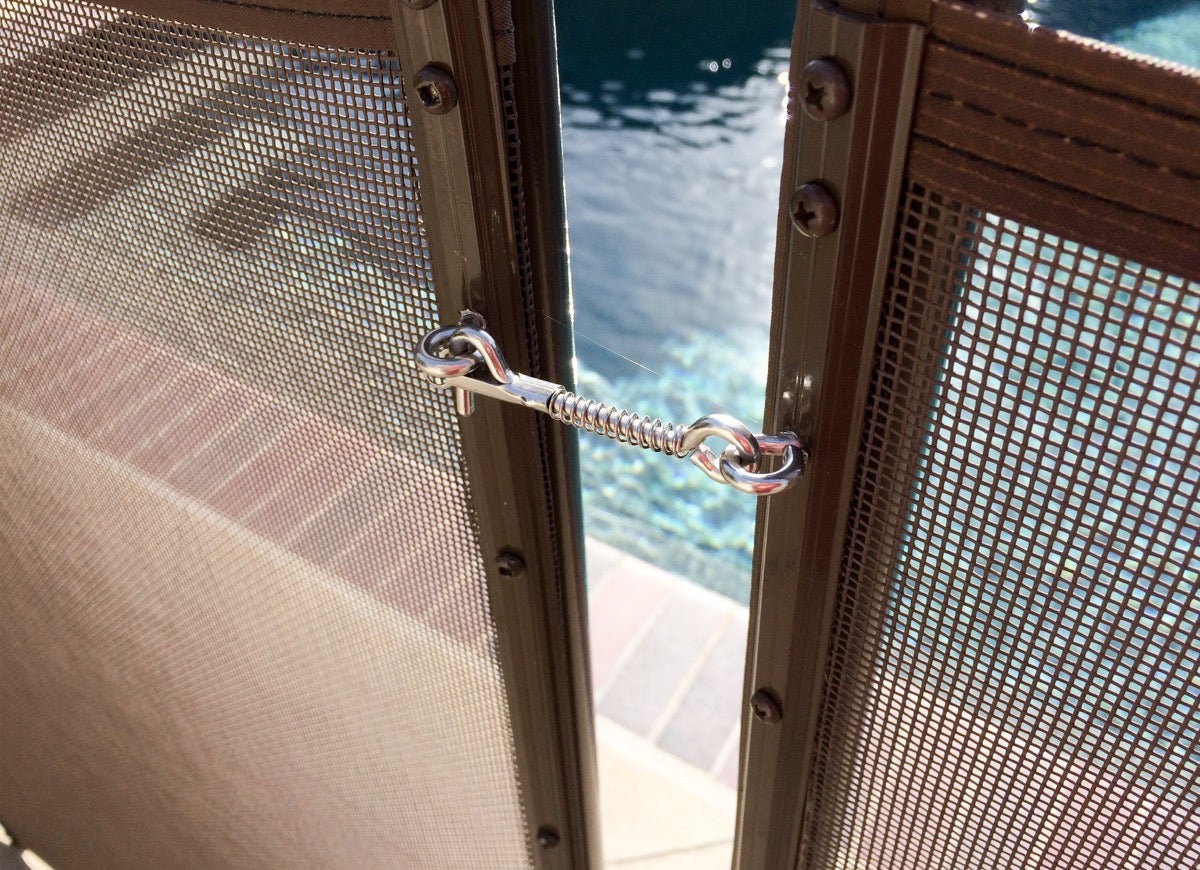
Swimming pools, like trampolines, are considered “attractive nuisances.” This legal term refers to the fact that kids may be tempted to come play in your pool, and should some tragedy befall them, you will be liable. This is true whether or not they’ve been invited, or if you even know that they are there. If the backyard or the pool area does not already have a secure fence with a locked gate, that’s an investment you’ll need to make right away.

Everything You Need for a Lush and Healthy Lawn
Keeping your grass green and your plants thriving doesn’t just take a green thumb—it starts with the right tools and supplies.